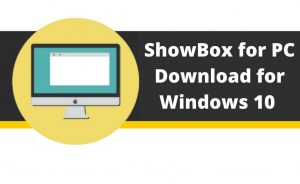Google Cloud Platform or GCP is an amazing suite of public cloud computing solutions by Google. This platform includes a wide range of the hosted solutions for an aim to compute, storage, and application development, which can run on Google hardware. GCP services are generally accessed by software developers, administrators, or other enterprise professionals on the public internet and through the dedicated network protocol.
Different Reasons Why You Must Select Google Cloud Platform
When it comes to the cloud platform, AWS & Azure are seen as dominant brands, however, it is Google Cloud Platform that is trying to develop the reputation of being the better proposition. In today’s post, we are going to take a close look at some important areas that your business must consider GCP than other options available.
Better and Improved Services
Google adds higher-level solutions, like one related to big data & machine learning, in their cloud platform. Big data services by Google include one for the data processing & analytics, like Google Big Query that is for the SQL queries and made against the multi-terabyte data. Additionally, Google Dataflow is the data processing service that is intended for the analytics of extract, transform & load; with real-time projects. This platform as well includes the Google Cloud Dataproc that provides Apache Spark & Hadoop solutions for data processing.
Affordable Pricing
Another important thing that sets GCP different from other solutions out there is the way it prices the services. You can take AWS that has a bit confusing pricing options that can lead to the organizations heavily overpaying for the cloud solutions. Google provides a simple and single costing plan where the users pay on the monthly basis as per their usage. The minimum usage will be 10 minutes, so rates will be rounded off at the nearest minute.
Types of tools available
GCP services are quite robust and the best way you must navigate them is by looking at the different solutions that are available based on the primary computing requirements: IaaS, PaaS, and SaaS.
Infrastructure as a service allows IT professionals to run the virtual machines without investing and managing the computing infrastructure on their own. Often IT can opt for the IaaS solution whenever their workload gets temporary, experimental, and subject to changes (for example sandbox projects).
Platform as a service is your next step for building on the IaaS model. The customers can opt for the benefits of IaaS, and get some underlying infrastructure –such as operating systems & middleware. The vendor hosts & manages these elements.
Software-as-a-service goes a step ahead– everything will be made available through the internet: the provider hosts and delivers the whole infrastructure that includes apps applications. Users just log in and access resources the specific delivers, like backup & recovery tools.
These are some of the benefits of GCP over AWS that round off the prices at the nearest hour, which means that it will end up being more expensive for the same amount of use.
